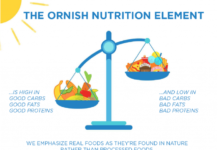Through generations, nutrition fallacies surrounding the preparation of food for babies have persisted, leading many modern mothers to follow these so-called “golden rules” when catering to their little ones’ dietary needs. However, these practices often yield unpredictable and adverse consequences!
Nutrition Fallacies 1 – Reheating Food: A Risky Practice

Pressured by time constraints and the need to cater to babies’ small meal portions, some mothers resort to cooking large batches and dividing them into multiple servings. Nevertheless, reheating food multiple times can result in the loss of essential vitamins in vegetables and dampen the meal’s appeal for the child, possibly leading to aversions to certain foods.
Moreover, repeatedly reheating food stored in the refrigerator creates an ideal breeding ground for bacteria and fungi, a peril that may go unnoticed by mothers. Feeding such food to the child may lead to stomach discomfort and even food poisoning.
A smarter approach is for mothers to prepare a pot of plain rice porridge (congee) in a suitable quantity, then cook separate bowls with different meat and vegetable combinations for each meal. The remaining plain congee can be safely stored in the refrigerator.
Nutrition Fallacies 2 – The Misconception of Bone Broth
Mothers frequently consult doctors with the perplexing question: “Despite diligently preparing bone broth for my child’s porridge, why do they suffer from malnutrition and exhibit inadequate weight gain or even weight loss?”
Nutrition experts reveal that while bone broth imparts a pleasant taste due to its nitrogen content, it contains meager amounts of protein and calcium. Moreover, children under one year old struggle to digest animal bone marrow fat, and excessive consumption can lead to diarrhea or loose stools.
Although bone marrow does contain calcium, it exists in an inorganic form that the child’s body cannot absorb efficiently. Consequently, bone broth lacks the required nutrients for proper child development and may even pose digestive hazards.
Furthermore, the belief that bone broth is a treasure trove of nutrients, with essential elements from the food dissolving into the broth while leaving behind the “nutrient-less remains,” is yet another misconception. In reality, nutritional analyses have shown that the protein from meat, fish, shrimp, etc., is predominantly present in the meat itself and does not dissolve into the broth. Likewise, vegetable fiber remains in the solid part, necessitating that the child consumes the “meat” portion of the food, which can be mashed, cut small, or cooked tenderly.
Nutrition Fallacies 3 – Overusing the Blender: A Hindrance to Development

Even though three to four-year-old children typically have developed sufficient teeth, some mothers continue feeding them pureed food using a blender, fearing that they may not adapt to solid foods. However, chewing plays a vital role in a child’s development. Neglecting this skill may lead to delayed development and digestive issues.
Children accustomed to swallowing without chewing may experience poorer nutrient absorption and slower growth compared to their peers. This habit can also impact brain development, as children without the opportunity to chew may struggle to discern between different textures when eating.
To rectify this, mothers should gradually introduce suitable foods to their child at each developmental stage. For instance, at six months old, the baby can start with watery rice porridge and gradually progress to thicker porridge or solid rice dishes by one year old.
Transitioning to new foods may initially cause discomfort or vomiting, but mothers should persist, as children quickly adapt. Gradually reducing blending time and incorporating more solid food will aid the child’s crucial chewing skills and improve nutrient absorption and growth.
Nutrition Fallacies 4 – Salty Foods: A Risk to Kidney Health
Adding salt or fish sauce to a baby’s food can adversely affect their still-immature kidneys. The child’s kidney function at seven months old is not fully developed, and excessive salt intake may result in salt accumulation in the body, leading to high blood pressure, edema, heart rhythm disorders, and more. Furthermore, excessive salt consumption during the weaning stage may impair the child’s brain development.
Ideally, mothers should avoid adding salt or fish sauce to their child’s food if they are under one year old. When tasting the child’s food, if it tastes suitable to the mother, it likely means that the food contains sufficient salt for the child’s needs.
Nutritious Foods Recommended for Children
To supplement their child’s diet effectively, mothers can include a variety of nutrient-rich foods

-
Green vegetables
Broccoli, spinach, kale, carrots, beets, cabbage, cauliflower, and curly kale offer essential vitamins, minerals, and fiber vital for the child’s health.
-
Meat, fish, and soybeans
Chicken, pork, fish, shrimp, and other seafood provide crucial proteins for muscle growth and overall development. For plant-based options, soy milk or tofu can be excellent choices.
-
Fresh fruits

Bananas, apples, pears, oranges, grapes, pineapples, and strawberries are rich in vitamins, antioxidants, and fiber, promoting the child’s digestive system.
-
Whole grains
Brown rice, oats, barley, corn, and quinoa provide energy for daily activities and are a good source of fiber.
-
Milk and dairy products
Essential for bone and dental development, milk and dairy products like yogurt, condensed milk, and cheese are crucial for the child’s health.
-
Nuts
Chia seeds, walnuts, and flaxseeds are rich in fiber and omega-3 fatty acids, supporting digestive health and brain development.
-
Tofu
A valuable source of plant-based protein and nutrients, tofu is versatile and beneficial for overall health.
Conclusion
To navigate away from these common nutrition fallacies, mothers should thoughtfully choose appropriate foods for each stage of their child’s development. Gradually introducing suitable foods and persisting through initial discomfort will allow the child to adapt and develop essential chewing skills, enhancing nutrient absorption and growth.
Mothers should avoid adding salt or fish sauce to their child’s food to protect their delicate kidneys and promote healthy brain development. Additionally, including a variety of nutrient-rich foods in the child’s diet will ensure they receive essential vitamins, minerals, and proteins for optimal growth and development.
By changing these misconceptions and embracing evidence-based practices, mothers can provide their children with the best start in life, fostering their overall health and well-being.
Related articles: https://newyorknews9.com/6-habits-to-improve-sleep-a-path-to-restful-nights/










